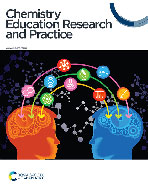Views of Chinese middle school chemistry teachers on critical thinking
Abstract
Critical thinking, a rational and open higher-order thinking mode in human cognition, is becoming imperative to success in modern life. Therefore, cultivating students’ critical thinking has become a common goal of education reform worldwide. Teachers play a crucial role in cultivating students’ critical thinking. However, existing studies have paid little attention to teachers, especially middle school teachers’ knowledge and understanding of critical thinking. Therefore, this study aimed to explore the perspectives of ten Chinese middle school chemistry teachers on critical thinking using concept maps, thinking aloud, and in-depth interviews based on concept maps. Results showed that most of the teachers believed that critical thinking means reflection and questioning and requires evidence awareness. All teachers had a positive attitude towards critical thinking and believed that it can promote evidence awareness, problem solving, decision making, teaching evaluation, logic, and systematisation. Teachers recognised that critical thinking can be taught, and the major factors affecting the development of students’ critical thinking were the environment, students themselves, teachers, evaluation, subject characteristics, and types of knowledge. Several strategies for developing students’ critical thinking in chemistry teaching were proposed, including setting diversified and different types of chemistry courses, developing controversial curriculum themes in real situations, and implementing experimental, project-based, problem solving, and history-based teaching. In addition, this study showed that teachers and students promoted the development of critical thinking within one another. Further, this study demonstrated an effective methodology for probing individual subjective thoughts.


 Please wait while we load your content...
Please wait while we load your content...